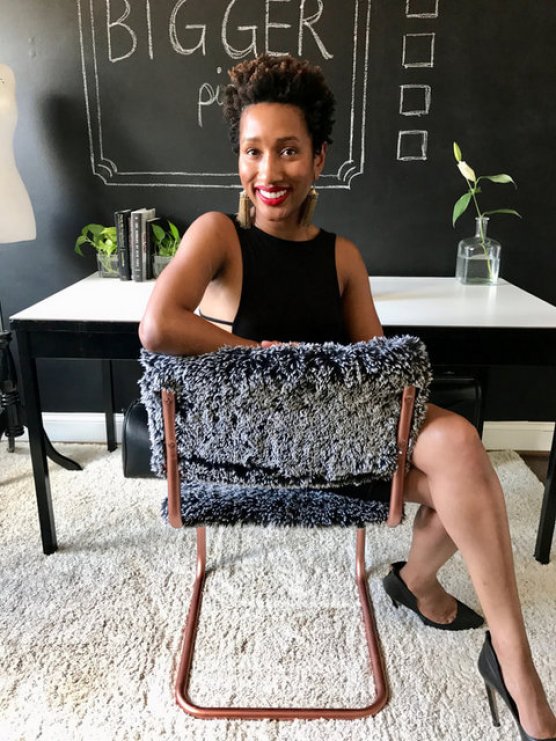By Nadine Matthews, Special to the AFRO
When most people think of DIY they think of furniture or household accessories, but Natalie Gillard, a passionate DIYer who routinely creates her own clothing and household items, took DIY to the next level when she created a board game. Not only did she create the board game but it is something integral to her work as Assistant Vice President of Multicultural Experience at Maryland’s Stevenson University. As a de facto ambassador of diversity and inclusion, Gillard travels to a wide range of colleges and universities and cultural events such as New York City’s Games for Change.
A charged encounter with one colleague and an enlightening one with another served as impetus for creating her game Factuality. “There was a coworker,” Gillard tells the AFRO, “who was notorious for slighting everyone and she marched into my office one day telling me my training for her student leaders needed to ‘go below the surface.’”

Gillard game uses a version of Monopoly to explain the differences between people. (Courtesy photo)
Gillard instinctively knew she wanted to incorporate a game into the process but wasn’t satisfied with what was out there. “I wanted,” she says, “a game that could incorporate a bunch of different intersections. Not just race but ability, lgbtq+, religion, everything.” Gillard had a Monopoly game in her office and remembered another colleague mentioning that the game was based on Atlantic City. “I found myself looking at the board and wondering what it would be like if people showed up as themselves as opposed to a hat or a car or wheelbarrow,” the game pieces used by players. “What happens if you bring yourself to this board and how would that impact how you could navigate it?” she wondered.
Gillard, whose mother is West Indian and father is Black American says, “Being deeply immersed in cultural experiences has always been important to me.” She began immersing herself in the fundamentals of cultural diversity in high school and continued pursuing it through graduate school where she designed her own self guided interdisciplinary program in race and ethnic relations.
Diving into census data and sociological research when designing Factuality, Gillard decided to incorporate redlining into the game. “Redlining policies from a hundred years ago largely impact Black and Brown communities, so Black and Brown players will have challenges navigating certain parts of that board.” Gillard has gone on to tour numerous colleges in the United States with it.
“Reimagining what that game would look like if you’re bringing real life issues into a simulation, to the experience. The characters play according to income and gender constraints and they play in a particular order to demonstrate the impact that access has on marginalized identities. There are prisons on the board but they are only applicable to certain demographics, we get deep into redlining and gentrification and it is all done in ninety minutes.”
Gillard moved to Maryland about six years ago and has been working at Stevenson University for almost two years. She grew up in Boston. There are certain things about her hometown she misses. “I miss the ability to be on one street and hear upwards of five different languages. Cultural diversity in Maryland seems to quickly get boiled down to Black and White whereas in Boston it’s so much about your ethnicity.” She also appreciates the cultural richness she finds in Maryland. “I enjoy what I consider a ‘better Black experience’ living down here. There’s a surplus of cultural experiences centered around Black culture in Maryland. It is much easier to find here than it was in Boston.”
The urgency for the type of work Gillard is doing remains high. “A lot of things that are occurring are atrocities. Everything seems to repeats itself; the good and the bad. When I see these children being separated from their parents and placed in these harsh living conditions, I think about the parallels to slavery. It’s awful to see these things happen and understand these things happen over and over again because people don’t want to tackle the origins of issues.” Still, she remains hopeful for some final sense of peace or resolution between races and cultures because of what she observes in the workshops she conducts. “I’m really fortunate to run this game with young people who always impress me. I’m so hopeful about the younger generation and feel excited about what’s to come because I see how aware they are.”

